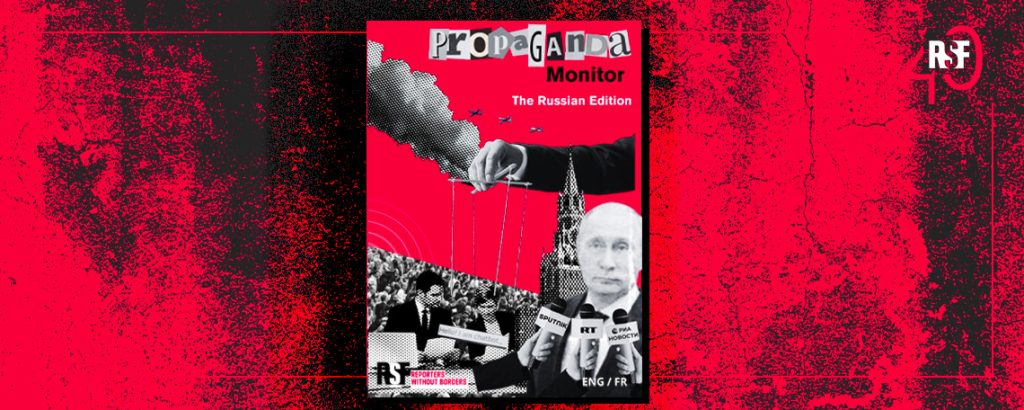Listen to the article
Russia’s Media Crackdown: How Putin’s Regime Controls the Narrative
Vladimir Putin’s regime has systematically dismantled Russia’s once-open media landscape, replacing it with a tightly controlled information environment that serves the Kremlin’s authoritarian and imperialist agenda. What began as a gradual reassertion of control has evolved into an organized campaign of repression against independent journalists and media outlets.
The implementation of draconian laws targeting “foreign agents” and “undesirable organizations” represents a deliberate strategy to stigmatize journalists and prevent factual reporting. These legislative weapons have had devastating consequences: currently, 48 journalists remain in detention, including 26 Ukrainians. The human toll extends beyond imprisonment—12 media professionals have been killed covering the war in Ukraine, one died in prison, and at least 48 others have been injured by Russian forces.
Behind this crackdown lies a sophisticated disinformation machinery. The Kremlin’s narrative—portraying Ukrainians as “Nazis,” rebranding the invasion as a “special operation,” and labeling independent news outlets as “foreign agents” funded by a “decadent West”—predates the February 2022 invasion but has intensified significantly since then.
What makes Russia’s approach particularly effective is its adaptability and technological evolution. “Russian propaganda is remarkable in that it relies on a comprehensive approach that does not distinguish between digital and traditional tools. Instead, it seeks to combine them,” explains researcher David Colon. “Generative AI has allowed Russian propagandists to scale up a number of their campaigns.”
The propaganda ecosystem encompasses numerous actors working in concert. State media outlets form the backbone, while military influencers and “information contractors” help amplify the Kremlin’s message. Though the Wagner militia’s media empire has been partially dismantled following Yevgeny Prigozhin’s death in August 2023, its networks remain influential. Propagandists like Alexander Malkevich, who operated in Prigozhin’s shadow, continue their work, while foreign allies help spread Russian narratives internationally.
This global reach represents one of the most concerning aspects of Russia’s information warfare. The Kremlin has successfully established propaganda footholds across Europe, Africa, Latin America, the Middle East, and North America. Researcher Maxime Audinet notes that in Africa, Russia exploits fragile media ecosystems to establish influence through “information contractors.” Despite EU sanctions, RT and Sputnik continue disseminating anti-EU messaging throughout Europe. In Latin America, Russia’s anti-imperialist rhetoric resonates with significant segments of the population.
Countering this expansive propaganda network requires multifaceted approaches. Reporters Without Borders (RSF) provides crucial support to independent Russian and Belarusian media outlets forced into exile, as well as Ukrainian outlets affected by the invasion. The organization also promotes fact-checking initiatives like the Journalism Trust Initiative (JTI), an international standard designed to help audiences identify reliable news sources.
However, experts warn that purely restrictive measures are ineffective against Russia’s adaptable propaganda machine. The RSF Propaganda Monitor Committee, comprising international experts in disinformation and media, emphasizes that democracies can only prevail in the information battle by reinforcing their commitment to independent journalism.
This committee—which includes specialists like Maxime Audinet from France’s Institute for Strategic Research, Sciences Po professor David Colon, and experts from Senegal, Slovakia, Serbia, Colombia, and Hungary—stresses that protecting journalistic independence is the most effective bulwark against disinformation.
As the Kremlin continues refining its propaganda techniques, the international community faces a critical challenge: how to preserve the integrity of the global information space while upholding democratic values of press freedom. The solution, according to RSF, lies not in censorship but in strengthening independent journalism and helping citizens distinguish reliable information from manipulation.
Fact Checker
Verify the accuracy of this article using The Disinformation Commission analysis and real-time sources.




12 Comments
It’s deeply troubling to see Russia’s efforts to stifle factual reporting and replace it with state propaganda. This is a worrying trend for media freedom globally.
The Kremlin’s use of legislation to target and stigmatize journalists is a disturbing tactic to silence critical voices. We must stand up for independent media.
This report highlights the scale and sophistication of Russia’s disinformation machinery. Distorting the truth to serve the regime’s agenda is a dangerous abuse of power.
The human cost of this crackdown, with journalists imprisoned and killed, is a sobering reminder of the high stakes involved. Media freedom must be protected.
The Kremlin’s use of draconian laws to target and stigmatize journalists is a blatant attempt to silence critical voices. This report is a sobering wake-up call.
Concerning to see the sophisticated disinformation machinery employed by the Kremlin. Factual reporting must be protected to counter the spread of propaganda.
This report sheds light on the Kremlin’s alarming campaign to control the media narrative. Suppressing independent journalism and spreading disinformation are hallmarks of authoritarianism.
Concerning to see the human toll of this crackdown, with journalists imprisoned and killed. Protecting press freedom is crucial for democracy.
The Kremlin’s systematic dismantling of Russia’s media landscape and imposition of state control over information is a clear threat to democracy. Factual reporting must be defended.
Concerning to see the devastating impact on journalists, with detentions, injuries, and deaths. Protecting the safety of media professionals is crucial.
This report underscores the urgent need to counter the Kremlin’s authoritarian campaign to manipulate the narrative. Independent journalism is a cornerstone of a free society.
The human toll of this crackdown is heartbreaking. We must stand firm in defending media freedom and the right to report the truth, no matter the cost.